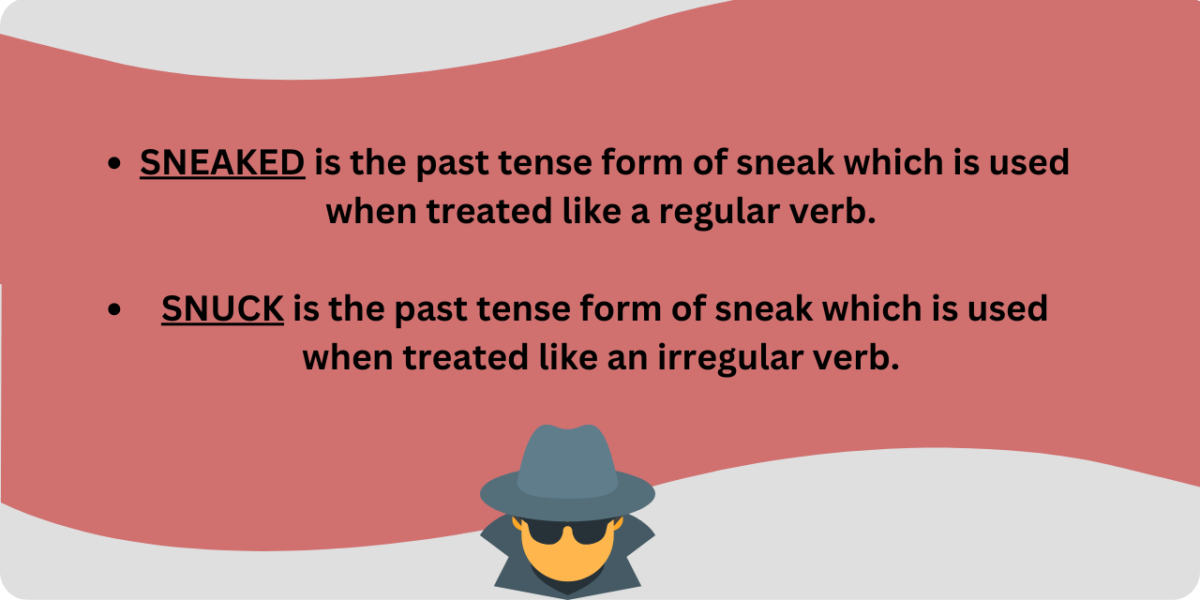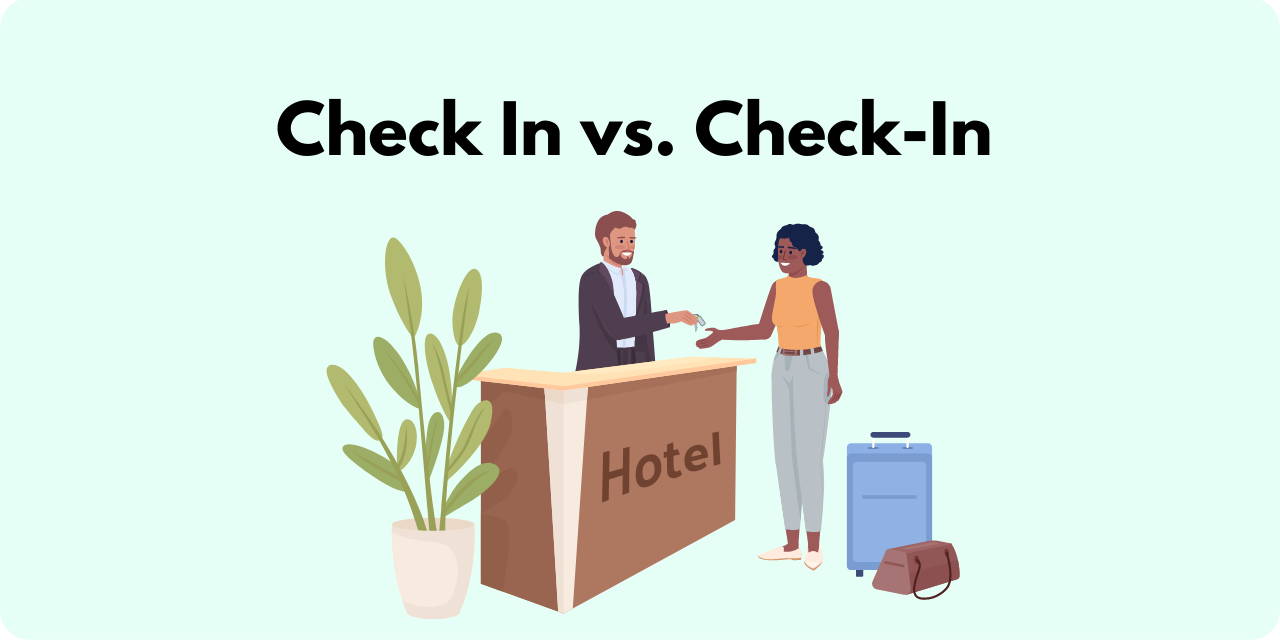When first learning English, conjugating verbs can often seem like a piece of cake. Although this is true for most regular verbs, the situation can get a little more confusing when you take irregular verbs into account. On top of this, some English words can be treated as both regular or irregular, depending on the usage. For instance, many people colloquially treat sneak as an irregular verb, even though it is technically a regular verb. So let’s find out if its snuck or sneaked.
What Does Sneak Mean?
- Sneak acts as a verb that means “to move with stealth.” Typically, this stealthy movement is done to pass detention or be inconspicuous.
As mentioned, sneak in its dictionary usage is strictly a regular verb. This means there is a typical and ‘correct’ way to conjugate it easily. With this in mind, it has also been colloquially used as an irregular verb, which is often the cause of confusion with it.
What is the Past Tense of Sneak?
Depending on how you treat the verb sneak, there are two main conjugations. Although there is one that is ‘more correct’ in the dictionary, both are used commonly enough that you should know them. Most people use whichever sounds best in a given sentence.
- Sneaked is the past tense form of sneak which is used when treated like a regular verb.
- Snuck is the past tense form of sneak which is used when treated like an irregular verb.
In the end, sneaked is the correct form, as it follows the dictionary grammar rules for regular verb usage. To conjugate a regular verb into the past tense, you would usually add -ed to the end, so sneaked would be the best choice, especially for formal writing.
According to most sources, both forms arose in American and British English during the late 1800s. This means that the vast majority of English speakers around the globe should be decently familiar with either. Some countries that use these dialects in some manner include:
- the United States
- Canada
- Australia
- Great Britain
Regardless of grammar rules, many people have begun to treat sneak as an irregular verb. That is how snuck came into the equation. While this is technically incorrect, it has become so popular colloquially that almost everyone is familiar with it. Due to this, you shouldn’t be worried too much about using it, especially in informal settings.

Is Snuck Even a Word?
Now that you know the ‘illegitimate’ origins of the irregular form snuck, you may wonder if it is even considered a word. In the end, it has everything that is required to be a word and then some. For instance, the word snuck has a clear structure, definitive meaning, and widespread popularity as a bonus.
You may be surprised that some dictionaries, such as Merriam-Webster and the American Heritage Dictionary, now include it as a recognized past participle form of sneak.
Thus, while you cannot say that snuck isn’t a word, it should be noted that it isn’t the original past participle. Thus, if you are writing in a very specific style, using the regular form is probably the safer option.
Example Sentences Using Sneaked and Snuck
Now that you know the origins of these two words, you may be wondering how to use them in your writing. Take a look at the following sentence examples to familiarize yourself with the usage of these words.
- I snuck into the lecture because I came in late.
- I sneaked off stage after I messed up my solo.
- He snuck away from the scene of the crime.
- I sneaked out during the party to catch a breath of fresh air.
- The robber snuck in through the downstairs window.
- After letting out a squeak and a shriek, the mouse sneaked past the snake.






